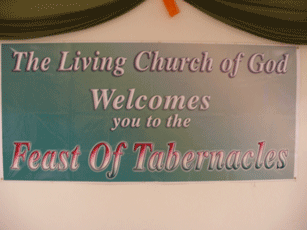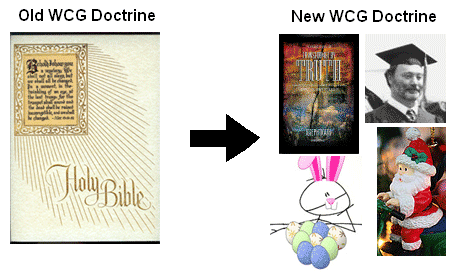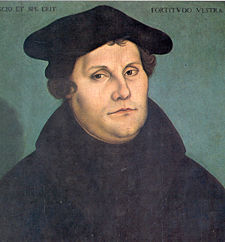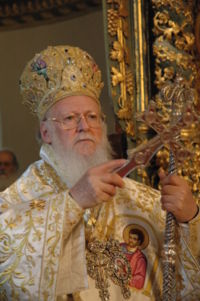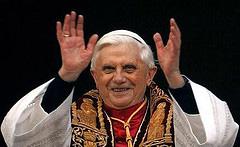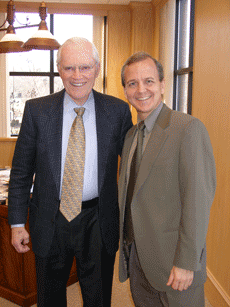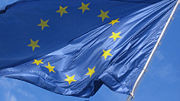
Flag of the European Union
COGwriter
In his latest weekly update, LCG’s Douglas Winnail included the following news item (which was prepared by Joe Brown and Scott Winnail):
Coming: A New Trade Block. Fifty-five U.S. Senators and Congressmen currently serve as advisors to a “working group” for the Transatlantic Common Market between the U.S. and the European Union. “An economist from the World Bank has argued in print that the formation of the Transatlantic Common Market is designed to follow the blueprint of Jean Monet, a key intellectual architect of the European Union, recognizing that economic integration must inevitably lead to political integration.” The idea of this union came to light in April 2007, when President Bush, German Chancellor Merkel, and European Commission President Barroso launched the Transatlantic Economic Council. Efforts are already underway to create a North American Community, including the U.S., Mexico and Canada. This community is to be based on security and economic issues and is intended to be in place by 2010 (WorldNetDaily.com, July 20, 2005; September 25, 2006). The Transatlantic Common Market is intended to combine the North American Community with the EU, creating the world’s most formidable trade bloc—a trade bloc that would be so large that its trading policies would automatically become policies for the world. Plans for this new “common market” are proceeding and are intended to pass through in a “treaty” form, much like the most recent EU Treaty, in order to avoid the scrutiny and debate that often come with more “formal” agreements (January 16, 2008). Revelation 18 warns of a future Beast, known as Babylon the Great, through which “the merchants of the earth have become rich through the abundance of her luxury” (v. 3).
—————————————————————–
Comments by COGwriter
I have been expecting such a development for some time. And today, I would like to explain what I have believed for over 20 years will most likely happen with the above proposed trade block.
Negotiations will continue and some type of loose agreements will happen. In the spirit of accommodation and personal interest, many of the “standards” of the European Union will be adopted by the USA, Canada and Mexico, as well as by nearly all of the countries of the world. The Arab nations will most likely agree with many of the standards as they seem to be destined to form a brief end-time alliance with the Europeans (The Arab World In the Bible, History, and Prophecy).
However, over time, it will become increasingly clear that the British will be in more agreement with the Canadians and Americans and that the European Union in more agreement with the Mexicans than the EU will have with the English-speaking nations.
Trade wars and/or serious trade disputes will most likely arise.
The Brits will ultimately decide that they are more supportive of the Americans and Canadians. They will be so much more supportive that they will end up in a trading agreement with them (with the Australians and New Zealanders probably also becoming part of that agreement).
The EU will decide that Mexico and the rest of Latin America are in more agreement with it and thus make some type of serious trading agreement with most (or all) of Latin America. The Vatican will also have influence here as Latin America is highly Roman Catholic.
The Europeans and Americans, however, will continue to have military agreements, though many will be tense about them.
Eventually, the Europeans (possibly under the cover of pretending that they are involved in a “NATO-like” exercise in North America) will eventually launch a surprise attack against the United States in fulfillment of both biblical and Catholic prophecies. The Mexicans will most likely be allied with the Europeans for this to happen.
That is a brief overview of where I believe that these agreements are heading.
Several articles of related interst may include:
Europa, the Beast, and Revelation Where did Europe get its name? What might Europe have to do with the Book of Revelation? What about “the Beast”?
Persecutions by Church and State This article documents some that have occurred against those associated with the COGs and some prophesied to occur.
Who is the King of the North? Is there one? Do biblical and Roman Catholic prophecies point to the same leader? Should he be followed? Who will be the King of the North discussed in Daniel 11? Is a nuclear attack prophesied to happen to the English-speaking peoples of the United States, Great Britain, Canada, Australia, and New Zealand? When do the 1335 days, 1290 days, and 1260 days (the time, times, and half a time) of Daniel 12 begin?
Is There A Future King of the South? Some no longer believe there needs to be. Might Egypt, Islam, Iran, Arabs, or Ethiopia be involved? What does the Bible say?
The Arab World In the Bible, History, and Prophecy The Bible discusses the origins of the Arab world and discusses the Middle East in prophecy. What is ahead for the Middle East and those who follow Islam?
